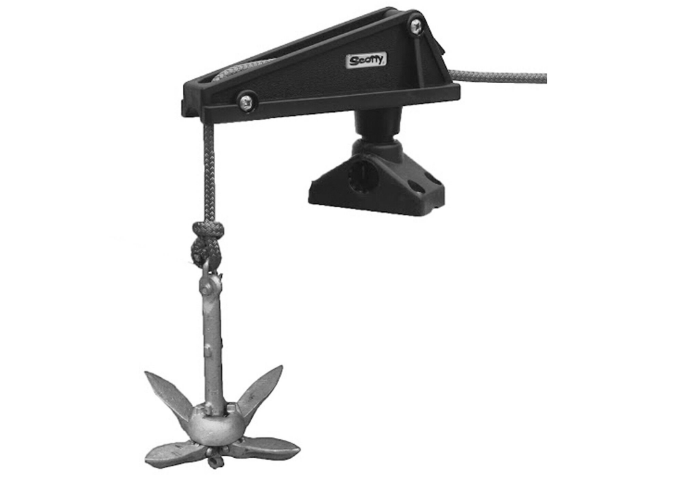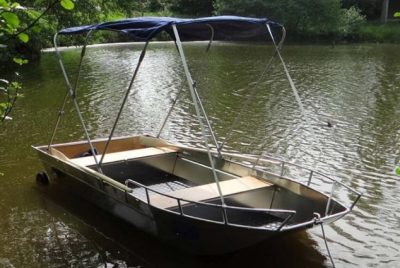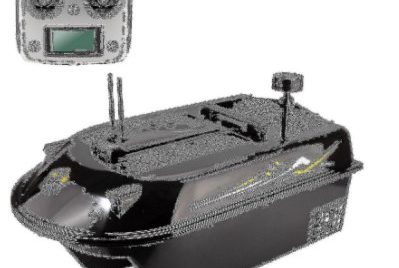Fishing Boat Anchor
Introduction
Navigating the World of Fishing Boat Anchors
Ah, the serene waters, the gentle rocking of the boat, and the anticipation of a perfect catch. Anchoring plays a pivotal role in this experience. Join me on a journey through the intricacies of choosing the perfect fishing boat anchor, a crucial decision for any angler.
Personal Connection to Anchoring Techniques
As an avid angler, my connection with anchoring goes beyond the technicalities. It’s about understanding the waters, adapting to different conditions, and, most importantly, having the confidence that my anchor won’t let me down when the fish are biting.
Understanding Anchor Types
Traditional Fluke Anchors

Let’s start with the classics. Traditional fluke anchors are beloved for their simplicity and effectiveness. Explore how these time-tested anchors provide reliable holding power in various conditions.
Plow Anchors for Stability
If stability is your priority, plow anchors might be your go-to choice. Delve into the design features that make plow anchors excel in holding your boat steady, even in challenging situations.
Claw Anchors for Versatility
Versatility matters, especially when navigating diverse waters. Claw anchors offer a flexible approach. Discover how their unique design adapts to different seabeds, providing a reliable hold in varied environments.
Considerations for Anchor Weight
Matching Anchor Weight to Boat Size
Size matters, not just for boats but for anchors too. Uncover the significance of matching anchor weight to your boat size and why it’s a critical factor in ensuring stability.
Impact of Bottom Conditions on Anchor Selection

The seabed isn’t uniform, and neither should your anchor be. Explore how different bottom conditions influence the type of anchor you should choose, from sandy bottoms to rocky terrains.
Anchor Materials and Durability
The Advantage of Galvanized Steel
Durability is paramount in the harsh marine environment. Galvanized steel anchors are renowned for their strength and resistance to corrosion. Dive into the reasons why this material stands the test of time.
Aluminum Anchors for Lightweight Convenience
For those who value lightweight options, aluminum anchors provide a compelling solution. Discover how these anchors offer a perfect balance between strength and convenience.
Assessing Anchor Coatings for Longevity
Coatings play a crucial role in enhancing an anchor’s longevity. Explore different coatings, from vinyl to powder coating, and understand how they protect your anchor from the elements.
Retrieval Mechanisms and Ease of Use
Importance of a Smooth Retrieval System

The joy of a successful fishing trip extends to hassle-free anchor retrieval. Learn about retrieval systems that make the process smooth, saving you time and effort.
Quick-Release Features for Convenience
In situations where a swift departure is necessary, quick-release features become invaluable. Understand why having this feature in your anchor is crucial for convenience on the water.
Adapting to Different Fishing Environments
Anchoring in Shallow Waters
Shallow waters require a different approach. Explore techniques and anchor types suitable for shallow fishing environments, ensuring a secure hold without damaging the seabed.
Deep-Sea Fishing Considerations
Heading into deeper waters? Learn how to adapt your anchoring strategy for the challenges of deep-sea fishing, including factors like stronger currents and unpredictable conditions.
Budget-Friendly Anchor Options
Finding Quality within Budget Constraints

Quality doesn’t always come with a hefty price tag. Discover budget-friendly anchor options that deliver reliable performance without breaking the bank.
Balancing Cost and Effectiveness
Balancing your budget while ensuring effectiveness is an art. Explore how to make informed decisions, considering your specific needs and the performance of different anchors in your price range.
Maintenance Tips for Longevity
Cleaning and Inspecting Anchors Regularly
Anchors endure harsh conditions, and regular cleaning is essential. Learn effective cleaning techniques and why regular inspections are crucial for anchor longevity.
Storing Anchors Properly
Proper storage can significantly extend the life of your anchor. Explore tips on storing anchors, from avoiding direct sunlight to rinsing with fresh water after each use.
Conclusion

Choosing the perfect fishing boat anchor is about more than just securing your vessel; it’s about anchoring confidence on the waters. With the right knowledge and considerations, you’ll be ready to face any fishing adventure with unwavering stability.
FAQs
1. How heavy should my fishing boat anchor be?
The anchor’s weight should be proportionate to your boat size; a general rule is around 1-2 pounds of anchor weight per foot of boat length.
2. Are certain anchor types better for specific bottom conditions?
Yes, different anchor types perform better in specific bottom conditions. Plow anchors excel in sandy or muddy bottoms, while claw anchors adapt well to rocky or weedy seabeds.
3. What materials are best for durability in saltwater?
Galvanized steel is a top choice for saltwater durability. Its resistance to corrosion makes it ideal for withstanding the harsh conditions of saltwater environments.
4. How often should I inspect and maintain my boat anchor?
Regular inspections after each use are essential. Clean your anchor thoroughly, check for any signs of damage or corrosion, and store it properly to ensure longevity.
5. Can a budget-friendly anchor still provide reliable performance?
Yes, budget-friendly anchors can offer reliable performance. Look for anchors with a good balance of cost and effectiveness, considering your specific boating and fishing needs.




